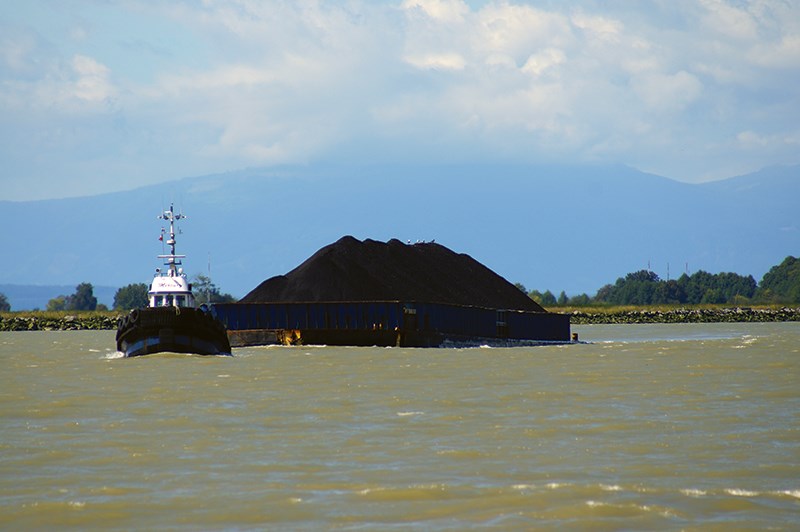A court case is now underway that involves several environmental groups challenging a decision by Port of Vancouver to permit at least 80 round trips of Panamax-size, coal-carrying vessels along the Fraser River, to Surrey Fraser Docks in Surrey.
The crux of the groups’ argument is that the port did not adequately consider the public interest and was biased in its decision to issue the permit for the planned facility, considering it benefits financially as a leaseholder.
Ecojustice, Communities and Coal and Voters Taking Action on Climate Change (VTACC) contend decision-making authority on environmental assessments ought to be at arms-length of the port and not done by the port itself, which is presently the case.
“The Port was required by law to consider this project proposal fairly. As our clients intend to prove to the Court, when the Port broke the rule against bias, it broke the law. Plain and simple,” said Karen Campbell, Ecojustic lawyer, via a news release.
Kevn Washbrook, director of VTACC, said the port is in a conflict of interest in issuing the permit.
“There is a concern there that the port has a direct interest to approve the projects that it’s meant to be permitting. So, we’re worried the port isn’t able to balance out its public regulator role vs. its landowner role,” Washbrook told the News.
Among some of the claims is that the port executives received bonus compensation should the project go ahead. As well, the groups have learned that the port was informing the coal lobby of their actions, via Freedom of Information documents.
The port declined to comment, stating the matter is before a judicial review, which should conclude today (May 19).
The port is a federal entity and under changes to the Canadina Environmental Assessment Act (CEAA) in 2012, has been given broader authority to approve projects with its own environmental assessments, noted Washbrook.
“There has to be a firewall” between the port and the CEAA, he said.
“We should be concerned the public regulators are making decisions without considering the public interest,” added Washbrook.
Among the concerns is the fact the permit never considered climate change as an environmental factor.
Noted the groups: “The Fraser Surrey Docks coal project would see up to four million tonnes of thermal coal carried by open-car rail from Wyoming’s Powder River Basin through Vancouver’s Lower Mainland each year, ultimately bound for export to foreign markets. If approved, this project could pump nearly seven million tonnes of CO2 emissions into the atmosphere each year.”
“Scientific studies have shown that coal is one of the dirtiest fossil fuels in the world. It can lead to serious human health effects and puts our already fragile climate in further peril,” said Washbrook, noting Richmondites should be concerned about increased tanker traffic, least to mention the further industrialization of the Fraser River estuary.
“Despite these risks, the Fraser Surrey Docks project would see millions of tonnes of thermal coal travel through Vancouver’s Lower Mainland each year. We cannot sit idle and let our communities become conduits for American coal. There is too much at stake,” added Washbrook.



